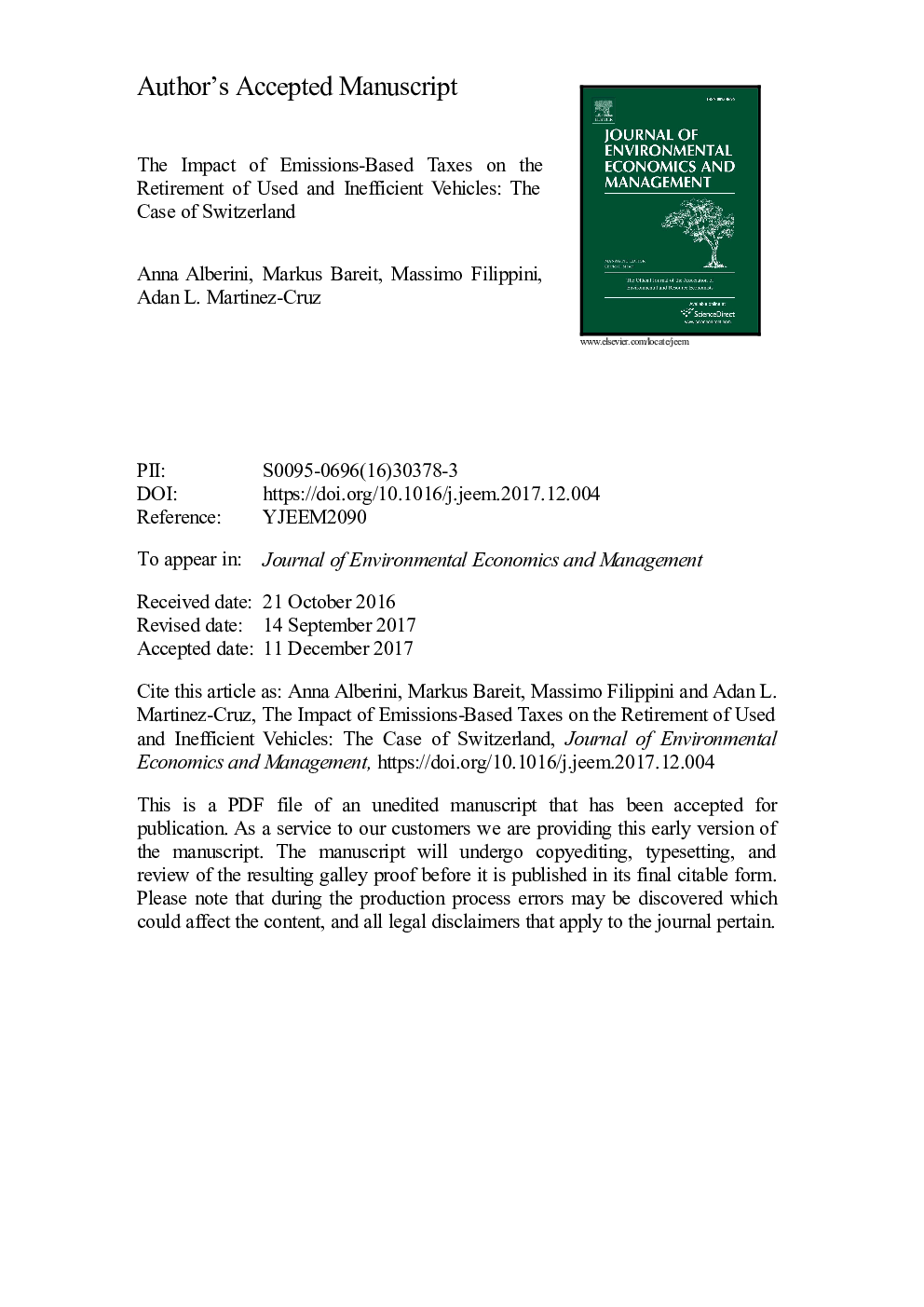| Article ID | Journal | Published Year | Pages | File Type |
|---|---|---|---|---|
| 7361364 | Journal of Environmental Economics and Management | 2018 | 59 Pages |
Abstract
Previous evaluations of emissions-based car taxes have estimated their impact on the shares or sales of new vehicles. In contrast, we ask whether taxes that penalize high emitters induce changes in the retirement of existing and inefficient vehicles. We exploit natural experiment conditions in Switzerland to analyze the impact of three different “bonus”/“malus” annual registration fee schemes implemented at the cantonal level. In the three schemes, the bonus rewards new, fuel-efficient vehicles. The malus is retroactive in canton Obwalden, i.e. it is charged on both new and existing high-emitting cars, but prospective in Geneva and Ticino. We use a difference-in-difference design within a survival analysis framework to assess direct treatment effects and spillover effects. While the bonus/malus in Obwalden hastens the retirement of existing high-emitting vehicles (by around 5%), the scheme in Geneva postpones retirement (by some 3%). We find no statistically significant effects in Ticino. These findings have important implications about the desirability of bonus/malus schemes and on their design, as well as on old car scrappage programs.
Related Topics
Social Sciences and Humanities
Economics, Econometrics and Finance
Economics and Econometrics
Authors
Anna Alberini, Markus Bareit, Massimo Filippini, Adan L. Martinez-Cruz,
